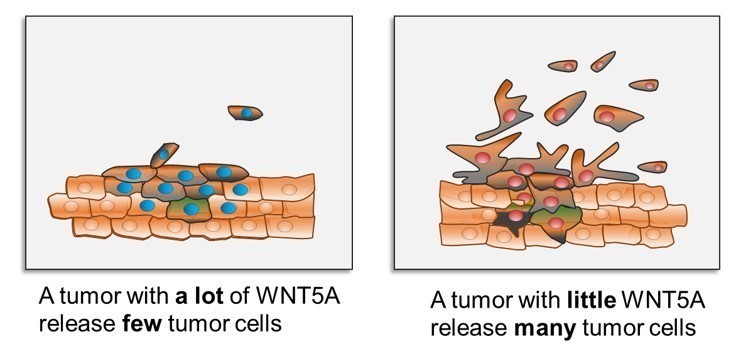The risk of metastasis is determined by the amount of intracellular WNT5A protein.
WNT5A is one of several proteins in the WNT family that occurs naturally in many cells. WNT5A signaling plays a decisive role in the direct and indirect regulation of a number of cellular processes, including division, differentiation, adhesion, polarity, migration and invasion. Increased or decreased WNT5A signaling has proven to be involved in the progress of several different forms of cancer. In some cancer types, WNT5A has been demonstrated to inhibit metastasis by making sure that cancer cells stick together instead of separating from the tissue. Tumour cells with high levels of the WNT5A protein is therefore less able to spread, while low levels increase the risk of metastasis. Research has shown that in for example breast, colon and prostate cancer, the protein expression level of WNT5A in cancer cells is directly correlated to the risk of dying from a tumour. In other forms of cancer, such as melanoma, the WNT5A signaling has the opposite effect, and WNT5A contributes instead to metastatis and reduced chance of surviving the disease.


